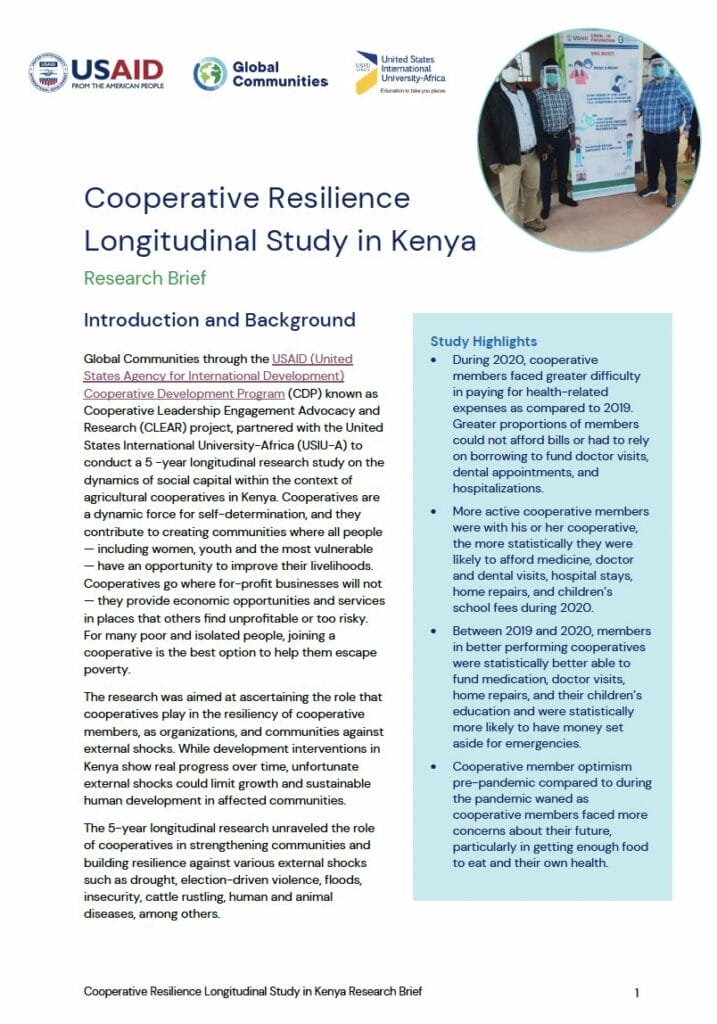Cooperative Resilience Longitudinal Study in Kenya

Global Communities through the USAID (United States Agency for International Development) Cooperative Development Program (CDP) known as Cooperative Leadership Engagement Advocacy and Research (CLEAR) project, partnered with the United States International University-Africa (USIU-A) to conduct a five-year longitudinal research study on the dynamics of social capital within the context of agricultural cooperatives in Kenya.
Cooperatives are a dynamic force for self-determination, and they contribute to creating communities where all people including women and youth have an opportunity to improve their livelihoods. Cooperatives go where for-profit businesses will not, they provide economic opportunities and services in places that others find unprofitable or too risky.
The research was aimed at ascertaining the role that cooperatives play in the resiliency of cooperative members, as organizations and communities against external shocks. While development interventions in Kenya show real progress over time, unfortunate external shocks could limit growth and sustainable human development in affected communities.
The five-year longitudinal research unraveled the role of cooperatives in strengthening communities and building resilience against various external shocks such as drought, election-driven violence, floods, insecurity, cattle rustling, and human and animal diseases, among others.
Published 07/03/2024 by Global Communities
